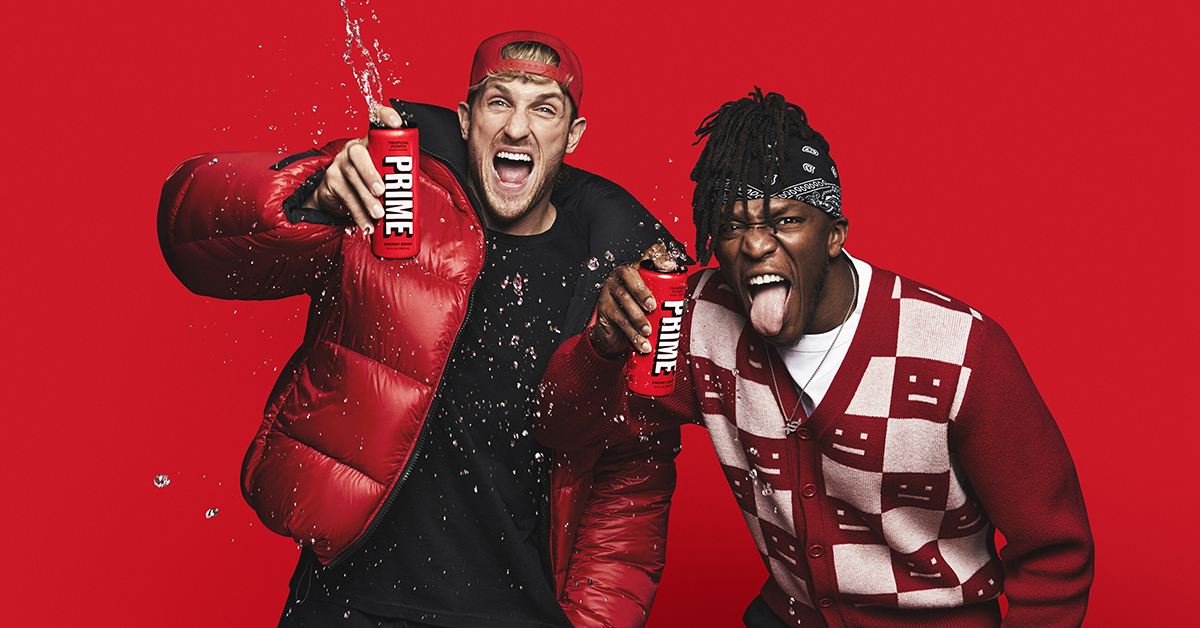As a pro fighter, Logan Paul has gone up against Damian Priest, Floyd Mayweather, and even his own PRIME co-founder KSI. But could his next public bout be with the senior Senator from New York?
In a letter sent to the agency yesterday, U.S. Senate majority leader Chuck Schumer (D-NY) called for the Food and Drug Administration to investigate PRIME’s energy drink line, arguing the beverage contains an “eye popping level of caffeine for a young kid’s body.”
Operated by Congo Brands, PRIME’s sports drink line launched in January 2022 and is now one of the fastest growing beverage brands in the country thanks to its nigh-instant popularity with Paul and KSI’s fanbase and has been particularly desired among kids and teens.
According to Circana, as of April 23, 2023 PRIME’s core hydration line had become the fifth largest brand in the sports drink category – just behind Electrolit, and catching up – reporting over $273.1 million in retail dollar sales at a four-digit growth rate. The brand has also launched internationally, including the U.K., Australia and more.
But it’s PRIME’s canned energy drink, introduced in January, that has Schumer calling for an investigation. The line contains 200 mg of caffeine per 12 oz. can, which places it well above products like Red Bull, Monster and Rockstar, but is about in line with the caffeine content offered by other next gen energy drinks like Celsius, Ghost and C4. It even rates well below the 300 mg per 16 oz. caffeine loads offered by Bang and Monster’s Reign.
The FDA considers up to 400 mg of caffeine per day as being safe for “healthy adults,” bearing in mind there is a wide variation in caffeine sensitivity person to person. On its website, the agency refers consumers to their healthcare providers to receive guidance on monitoring childrens’ caffeine intake.
The company is now defending its products and said it is open to talk with the FDA about industry guidelines. In a statement to BevNET, the brand said it is “very important to make the distinction” between its non-caffeinated PRIME Hydration line and the energy drinks, noting that PRIME Energy “contains a comparable amount of caffeine to other top selling energy drinks, all falling within the legal limit of the countries it’s sold in” and that the line is “not made for anyone under the age of 18.”
“As a brand, our top priority is consumer safety, so we welcome discussions with the FDA or any other organization regarding suggested industry changes they feel are necessary in order to protect consumers.”
Circana reported that PRIME Energy had surpassed $42.5 million in U.S. retail dollar sales in the 52-weeks ending April 23, after fewer than four full months on the market.
However, PRIME’s wide popularity with kids has already led schools in the U.K. and Australia to issue bans for the energy drink in school out of concern for student health.
Schumer claims there’s been little difference in the online marketing between PRIME’s caffeine free hydration line and its energy drink, arguing that the brand “feverishly targets” kids, and he suggested any FDA investigation should focus on both ingredients and marketing.
Schumer’s letter comes just around the 10-year anniversary of the 2013 Senate Commerce Committee’s hearings on the marketing of energy drinks to children, which came after a 14-year-old girl in Maryland died from caffeine toxicity when she reportedly consumed two 24 oz. Monster drinks in one day. In that case, executives from Red Bull, Monster and Rockstar joined together to defend their products and marketing tactics, asserting that their drinks are safe and do not target children.
More recently, in December, advertising watchdog group Truth In Advertising and the University of Connecticut Rudd Center for Food Policy & Health filed a complaint with the FDA against performance energy brand Ghost alleging that it was “unfairly and deceptively” marketing to children with its co-branded candy flavors and gaming-centric advertising.
